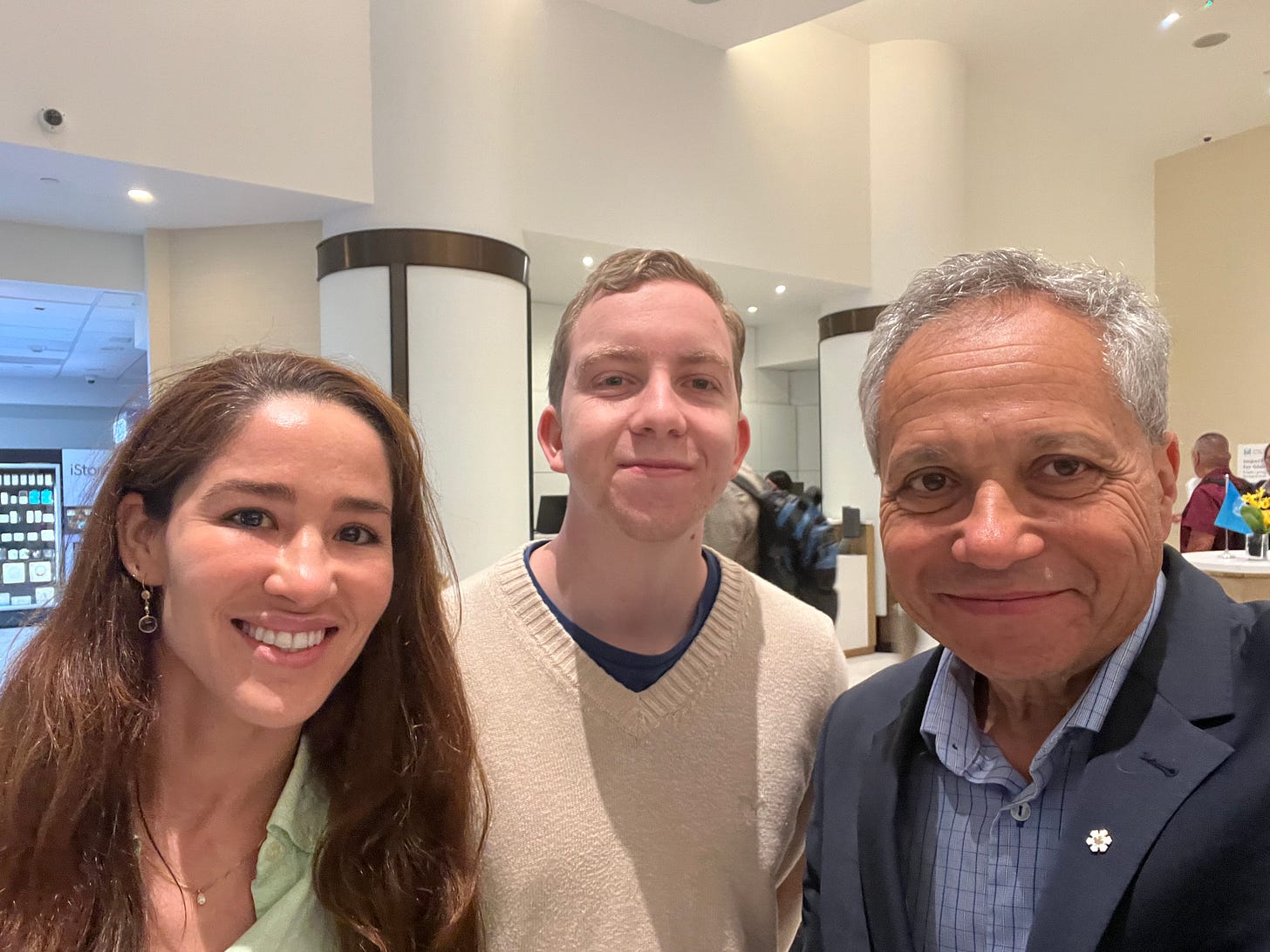
In 1949, Dr Leo Alexander, a psychiatrist and consultant to the Secretary of War on the Nuremberg trials, wrote in The New England Journal of Medicine on “Medical Science under Dictatorship”:
Whatever proportions these crimes finally assumed, it became evident to all who investigated them that they had started from small beginnings. The beginnings at first were merely a subtle shift in emphasis in the basic attitude of the physicians.
Today, on International Holocaust Remembrance Day, I want to detail a case that is not widely known. It is small compared to the major geopolitical issues of the day — war, hostages, and so on. But it involves the attitudes of medical students around the world. And there is a specific opportunity to act. To be clear: I am not equating this case to the Holocaust, but I am arguing that even small erosions of norms must be confronted.
In August 2024, the International Federation of Medical Students’ Associations (IFMSA), one of the largest student-run organizations representing 1.5 million medical students across 123 countries, suspended the Federation of Israeli Medical Students (FIMS). This action, taken without formal investigation by waiving IFMSA’s own bylaw, raises significant concerns regarding anti-Semitism within international medical student organizations. Although IFMSA has signalled a review of its membership policies, there has been no reversal of the decision in the months since. Left unchallenged, the decision reflects a broader normalization of discriminatory practices. It’s time for international organizations with formal affiliations to IFMSA to act.
According to IFMSA, the suspension was based on allegations of threats, harassment, and hate speech. However, Miri Shvimmer, President of FIMS, cited other reasons, including accusations related to Israeli students’ military service, the presence of students from Ariel University in the West Bank, and rumours suggesting that Israeli representatives were associated with Mossad. We do not have a record of the actual discussion since delegates voted not to record minutes and to pause the livestream. When Shvimmer spoke, “half of the delegates left the room, including many members of the executive board, and those participating online were unable to hear [her] arguments because the livestream was paused.” Immediately following the meeting, someone posted a picture on social media of several delegations with their national flags and this caption: “Proud moment after kicking israshit out of the federation,” with a heart emoji.
These facts suggest that the suspension was influenced by political biases rather than substantive violations of organizational bylaws. Notably, the IFMSA voted to suspend its own bylaw requiring a formal investigation before suspending any national medical students’ association, a step unprecedented in the organization’s history— and one not applied to Iran or Russia.
This selective treatment is indicative of discriminatory double standards, which align with the International Holocaust Remembrance Alliance’s definition of anti-Semitism. This definition includes “applying double standards by requiring of Israel a behavior not expected or demanded of any other democratic nation.” The IFMSA’s actions deprive Israeli medical students of participation in international academic exchanges and undermine the organization’s stated commitment to non-discrimination.
Historically, academic boycotts like this equate the actions of civil society with those of their government, often punishing students who are in the best position to promote long-term peace and cooperation. In attempting to delegitimize Israel, the IFMSA risks delegitimizing itself by violating core principles of non-discrimination outlined in its own constitution.
The broader context reveals further troubling patterns within the IFMSA. Following the events of October 7, 2023, IFMSA issued a statement equating the “Palestinian genocide” to genocides in Armenia, Rwanda, Bosnia, and the Holocaust. Additionally, some IFMSA officials have used personal platforms to accuse Israel of genocide and called for its destruction, while the organization has remained silent on the release of hostages, sexual violence, and militarization of hospitals during the conflict. These actions and omissions contribute to an environment where anti-Semitic rhetoric and actions may be normalized within the IFMSA and beyond.
International organizations that maintain formal affiliations with the IFMSA, including the United Nations (UN), the World Health Organization (WHO), and the World Medical Association (WMA), are now faced with a dilemma. WHO’s Constitution affirms that “the enjoyment of the highest attainable standard of health is one of the fundamental rights of every human being without distinction of race, religion, political belief, economic or social condition,” a principle violated by IFMSA’s actions. The continued endorsement of IFMSA by these organizations undermines their commitment to global cooperation and non-discrimination.
The World Medical Association issued a statement expressing “deep concern” about the suspension. But until the IFMSA reverses its suspension of FIMS and addresses anti-Semitism within its ranks, the UN, WHO, and WMA should suspend their affiliations with the organization to preserve the integrity of their values and the principles of international cooperation.
Next week, WHO’s Executive Board, made up of 34 member countries, will review WHO’s official relations with IFMSA (among many other organizations). Because IFMSA is led by medical students, these young people should get leeway, assistance, and support. However, the Executive Board should not automatically renew the relationship without discussion and a clear path towards IFMSA reversing its decision.




Peter
This is a much needed insight into the double standards towards Israel. As you mention-what about China, Sudan, Russia--the list goes on!! And of course Hamas!
Thank you Peter for highlighting this unacceptable behavior and the debate that will face the WHO EB !